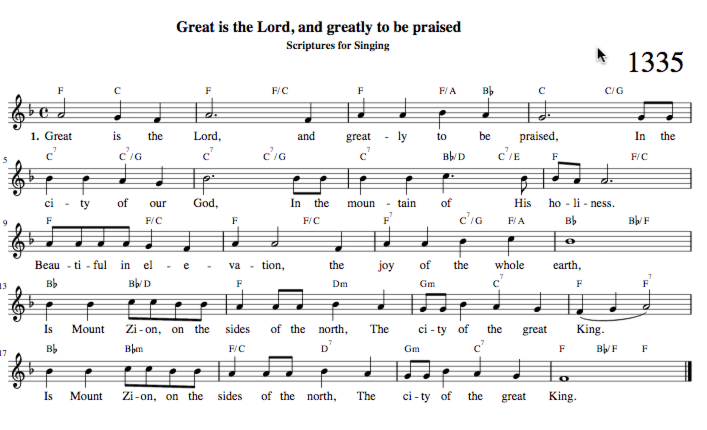Today’s readings are from Ezekiel 12 and Psalm 51. Ezekiel is commanded by the Lord to demonstrate the Lord’s judgment against Jerusalem by preparing an exile’s baggage and digging a hole in the wall of his home. Carson explains the event,
One can imagine the power in Ezekiel’s symbol-laden actions. In full view of the exiles, he packs his meager belongings in exactly the same way he would if he were a Jerusalemite preparing for a seven-hundred-mile march into exile. What he could bring would have to be carried on his shoulders. At night he digs through the mud-brick walls of his own house. Probably this symbolizes the futile attempt at breakout made by Zedekiah and those immediately around him (2 Kings 25:4; Jer. 39:4): they fled, but they could not escape. 1
In Ezek. 12:22, God addresses the saying among the people, “…the days grow long, and every vision comes to nothing?” Judgment is now imminent and will come to pass. This proverb will no longer be used. Carson notes,
Ezekiel and (in Jerusalem) Jeremiah keep promising the destruction of the city while years pass with its mighty walls intact. Jeremiah has been at it for decades. Doubtless God sees the long delay as powerful evidence of his forbearance and mercy, providing multiplied opportunities for repentance; the people simply grow cynical. So judgment will certainly fall, Ezekiel says—and the popular proverbs will be destroyed.2
Relating it to today, he says,
So it is not surprising that in the “last days”—the days between the first and second comings of Christ, the days in which we live—new generations of scoffers arise and make a virtue of the same wretched cynicism: “Where is this ‘coming’ he promised? Ever since our fathers died, everything goes on as it has since the beginning of creation” (2 Pet. 3:3–4). But the Flood came. And so will the fire.3
Psalm 51 is the famous song of David’s repentance of his sin with Bathsheba after he was confronted by Nathan the prophet. In Ps. 51:1-4, David pleads to God for His mercy while asking for forgiveness and both confessing and repenting of his sin. He acknowledges that his sin is first and formost against the holy God (Ps. 51:4). He confesses that he is encompassed by the grief and guilt of his sin (Ps. 51:3). David states a truth in Ps. 51:5 that is true of all of us — we are born with a sin nature (c.f. Rom. 3:23).
Psalm 51:10 is a sinner’s cry for restoration and a new start. It is continued in Psalm 51:12. He states that God is able to remove the stain of sin in Ps. 51:7. There is a plea for the mercy of God in Ps. 51:11.
The end result of restoration by God is that David will testify of the mercy and goodness of God before other sinners who may also be burdened by the guilt of their sin. They too can turn to God for forgiveness and restored fellowship with God.
Of the many, many verses that I highlighted in this psalm, the last one is Ps. 51:17. God delights when I forsake sin and return to him with my heart broken over what I am and what I have done. Even the sinner who struggles under the guilt of repeated sin (Heb. 12: ) finds forgiveness and restoration in God.
I am amazed at the inverse relationship between the two readings today. Ezekiel is full of the judgment of God against unrepentant sin by His chosen people in Jerusalem. Psalms 51 is full of repentance, mercy, forgiveness, and restoration. The question to ask myself is, “Is my heart tender and soft regarding sin in my life or is it hardening and unrepentant?”
1 D. A. Carson, For the Love of God: a Daily Companion for Discovering the Riches of God’s Word., vol. 2 (Wheaton, IL: Crossway Books, 1998), 25.
2 Ibid.,
3 Ibid. ,

